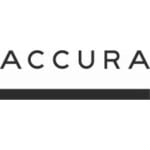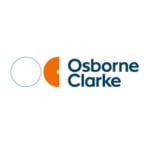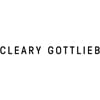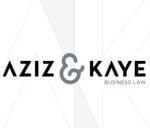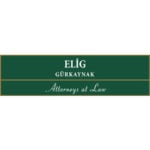-
What is the relevant legislative framework?
In the United States, state and federal antitrust laws govern both criminal and civil violations. These laws address criminal enforcement and civil causes of action for both government enforcers and private parties.
The Sherman Act, enacted in 1890, forms the foundation of US antitrust law. Section 1 of the Sherman Act prohibits ‘[e]very contract, combination, in the form of trust or otherwise, or conspiracy, in restraint of trade or commerce among the several states, or with foreign nations.’ 15 U.S.C. § 1.
The Clayton Act (15 U.S.C. § 15) creates a civil right of action by state and governments and private parties for damages under the Sherman Act. Enforcers of the US antitrust laws include the Department of Justice (DOJ), the Federal Trade Commission (FTC), state attorneys general and private parties.
Limited exemptions to Sherman Act liability apply to certain industries via various federal statutes and judicial decisions including, baseball; insurance (McCarran-Ferguson Act); agriculture (Capper-Volstead Act); export trade (Webb-Pomerene Act); ocean cargo (Shipping Act and Merchant Marine Act); and defence production (Defense Production Act). States and state-supervised entities enjoy immunity under the state action doctrine and the Noerr-Pennington doctrine protects litigation and joint lobbying efforts. Additionally, in certain heavily regulated industries (such as federal securities), the implied immunity doctrine may displace antitrust law in favour of the other regulatory regime when certain factors are present.
-
To establish an infringement, does there need to have been an effect on the market?
Certain types of conduct are considered per se unlawful, wherein the conduct itself is the violation and no effect on the market need be shown. These include horizontal price fixing, bid rigging, and market allocation. The DOJ has taken the position that labour market collusion, i.e., wage-fixing and no-poach agreements, may also be considered per se unlawful. The DOJ typically prosecutes only per se violations criminally.
Other types of conduct are subject to the more flexible “rule of reason.” These include information exchange, vertical price fixing, vertical non-price restraints, and exclusive dealing. The rule of reason inquires into whether the challenged behaviour imposes an unreasonable restraint on trade under the circumstances.
-
Does the law apply to conduct that occurs outside the jurisdiction?
The US government has the authority to apply US antitrust laws outside the jurisdiction under limited circumstances set out in the Foreign Trade Antitrust Improvements Act (FTAIA). 15 U.S.C. § 6a. The FTAIA limits the Sherman Act’s application to conduct that has a “direct, substantial and reasonably foreseeable” effect on US commerce or conduct that involves import trade or import commerce.
-
Which authorities can investigate cartels?
The DOJ’s Antitrust Division, the FTC, the US Attorneys’ Offices, and state attorneys general may all investigate cartels. The DOJ’s Antitrust Division has exclusive jurisdiction over federal criminal cartel enforcement. Both the DOJ Antitrust Division and the FTC can enforce the antitrust laws civilly. With approval from the DOJ Antitrust Division, any US Attorney’s Office may also investigate and prosecute civil and criminal antitrust violations. Further, state attorneys general may also investigate and bring civil or criminal charges pursuant to applicable state competition statutes.
Additionally, the DOJ’s Procurement Collusion Strike Force (PCSF) investigates and criminally prosecutes violations related to US public procurement, grant, and program funding. The PCSF is composed of the DOJ’s Antitrust Division, multiple U.S. Attorneys’ Offices, the Federal Bureau of Investigation (FBI), and the Inspectors General for multiple federal agencies.
-
How do authorities typically learn of the existence of a potential cartel and to what extent do they have discretion over the cases that they open?
The US authorities may learn of the existence of a potential cartel through a variety of means, including citizen complaints and whistleblower reporting, law enforcement referrals, cooperation with international enforcers and domestic agencies, in-house investigators, private civil litigation, self-reporting by organisations or individuals under the DOJ’s Leniency Program (described in Section 3), FTC/DOJ civil merger or conduct investigations accompanied by subpoenas or civil investigative demands (“CID”) which seek documents, information, or testimony, or through the disclosure of materials obtained during the regulatory process. For example, companies are required to provide certain documents under the Hart-Scott-Rodino Act when reporting proposed transactions that meet the requisite thresholds to the DOJ and FTC. Proposed transactions may be subject to extensive agency review, which require companies to provide extensive productions to the agencies for review and may reveal the existence of a potential cartel. Parties to a proposed merger or acquisition may take advantage of a safe harbour policy for voluntary self-disclosures made in connection with transactions. See DOJ Justice Manual 9-28.900; 7-3.300.
-
What are the key steps in a cartel investigation?
The DOJ can open a criminal antitrust investigation as either a preliminary inquiry or a grand jury investigation.
When determining whether to open a preliminary investigation, the Antitrust Division will consider: (1) if there is reason to believe an antitrust violation may have been committed; (2) what amount of commerce is affected; (3) if the investigation will duplicate or interfere with other efforts of the Division or other enforcers (i.e., the FTC, a US Attorney, or a state AG); and (4) if allocating resources to the matter fits within the needs and priorities of the Division.
The Division can request a grand jury investigation if the preliminary investigation results in additional evidence of an antitrust violation.
When determining whether to open a grand jury investigation, the Division considers the foregoing, as well as if the Division would proceed with a criminal prosecution in the event sufficient evidence confirming the violation is developed. See DOJ Justice Manual 7-3.100.
The statute of limitations for criminal offences under the Sherman Act is five years, and the civil statute of limitations is four years. 18 U.S.C. § 3282(a).
-
What are the key investigative powers that are available to the relevant authorities?
Grand juries can issue subpoenas for documentary or testimonial evidence. Witnesses who refuse to testify in response to a subpoena or provide responsive documents may be held in contempt and subject to fines, imprisonment and obstruction of justice charges.
With a search warrant—which is issued by a judge after a showing of probable cause that a crime has been committed and there is evidence of that crime at the place to be searched—the DOJ may conduct unannounced searches of businesses and residences and seize documents or other evidence. The DOJ may also conduct surprise visits to individuals or organisations to seek informal witness interviews. Under the Electronic Communications Privacy Act, DOJ can also obtain search warrants for the contents of wire or electronic communications directly from communication service providers.
In a civil investigation, the antitrust agencies may issue a CID, seeking documents and information or testimony of individuals. In any civil case, the parties can seek this type of information through the discovery process.
Interviews are often conducted in person but may also occur remotely. Parties seeking leniency under the Leniency Program may submit to an interview voluntarily, rather than through a compulsory process.
-
On what grounds can legal privilege be invoked to withhold the production of certain documents in the context of a request by the relevant authorities?
The two main legal privileges invoked by parties include attorney-client privilege and the work-product doctrine. Attorney-client privilege protects confidential communications between a client and counsel for the purpose of obtaining or relaying legal advice. The privilege extends to in-house counsel and company employees. The work-product doctrine protects from disclosure materials prepared by counsel (or at the request of counsel) in anticipation of litigation.
Under the joint-defense privilege, parties may also assert attorney-client privilege to protect privileged statements made to an attorney for another party pursuant to the parties’ common defense interests.
-
What are the conditions for a granting of full immunity? What evidence does the applicant need to provide? Is a formal admission required?
The DOJ Antitrust Division’s Leniency Policy allows organisations or individuals to self-report involvement in a criminal conspiracy. If the individual or the organisation meets the criteria for leniency, then they will not be charged criminally for the illegal activity. The Leniency Policy permits two types of corporate lenience: Type A and Type B.
Type A leniency is available before the Antitrust Division has opened an investigation so long as the Division has not yet received information regarding the illegal activity from an alternative source. The report must be made “with candor and completeness” and the confession of wrongdoing must be a corporate act (and not isolated confessions of directors, officers or employees). Further, the applicant must provide “timely, truthful, continuing, and complete cooperation” to the Division during its investigation and use best efforts to make restitution, to remediate harm, and to improve its compliance program. Finally, the applicant cannot have coerced another party to participate in the illegal activity nor have been the leader or originator of the activity. Where Type A leniency is granted, the corporation’s officers, directors and employees receive amnesty and will not be criminally charged. DOJ Justice Manual (7-3.310).
Type B corporate leniency is available after the Division has opened an investigation so long as the Division does not yet have evidence that is likely to result in a sustainable conviction against the applicant. Outside of timing, Type B applicants have the same criteria as Type A applicants (including prompt reporting, cooperation, restitution and remediation, etc.). In addition, the applicant must be the first to qualify for leniency and the Division must determine that granting leniency would not be unfair to others. DOJ Justice Manual (7-3.320). Under Type B leniency, non-prosecution protection for current directors, officers, and employees is not automatic, but at the discretion of the Division.
In both Type A and Type B applications, prompt reporting upon discovery of the illegal activity is required. Discovery occurs “at the earliest date on which an authoritative representative of the applicant for legal matters—the board of directors, its counsel (either inside or outside), or a compliance officer—was first informed of the conduct at issue.” DOJ, Frequently Asked Questions about the Antitrust Division’s Leniency Program.
Individual leniency is available where the Division has not yet received information about the illegal activity from any other source and where the individual reports with candor and completeness and cooperates throughout the investigation, and the individual is not the leader of the illegal activity nor did they coerce another party to participate.
Leniency recipients may also face reduced liability for civil damages via the Antitrust Criminal Penalty Enhancement and Reform Act of 2004 (“ACPERA”), which limits civil liability in private state or federal antitrust suits for those cooperating with the Division in criminal investigations with the Division.
Outside of the Antitrust Division, the Department of Justice has expanded its menu of voluntary self-disclosure policies. In the last three years, the department announced that every component will have a policy—like the Antitrust Division’s Leniency Policy—under which companies that voluntarily self-disclose criminal conduct, cooperate, and remediate misconduct will avoid a guilty plea. The department also announced a safe harbour policy for voluntary self-disclosures made in connection with mergers and acquisitions. See DOJ Justice Manual (9-28.900). For the Antitrust Division, however, the corporate Leniency Policy is its voluntary self-disclosure policy and qualifying for the safe harbour policy for M&A first requires meeting all relevant requirements of the Leniency Policy. See DOJ Justice Manual (7-3.300).
-
What level of leniency, if any, is available to subsequent applicants and what are the eligibility conditions?
Under the policy, leniency is only available to the first party to self-report and qualify. For others, self-reporting and cooperation are also considered when the Division assesses the appropriate disposition and as a mitigating factor at sentencing.
-
Are markers available and, if so, in what circumstances?
The Antitrust Division gives a leniency applicant a marker to hold its place in line. Only one applicant can obtain a marker for a single conspiracy. Applicants may receive a marker only if they: (1) report the discovery of some information or evidence indicating that the applicant has engaged in a criminal antitrust violation and disclose the general nature of the conduct discovered; (2) identify the industry, product, or service involved in terms (the identification must be specific enough that the Division can determine whether leniency is still available); and (3) identify the client.
Markers are granted for only a limited amount of time, generally between 30 and 45 days while the investigation is conducted, but they may be extended for additional periods if the applicant demonstrates a good-faith effort to complete its application promptly.
Because only one applicant may receive a marker per conspiracy, subsequent applicants can lose the race for a marker by a matter of hours, resulting in significant fines and prosecution.
-
What is required of immunity/leniency applicants in terms of ongoing cooperation with the relevant authorities?
Applicants must provide “timely, truthful, continuing, and complete cooperation that advances the Antitrust Division’s investigation” throughout the leniency process. Additionally, applicants will enter into conditional leniency agreements, which contain cooperation obligations and under which the Division can revoke leniency for noncompliance at any time. Cooperation requirements may extend from the investigation through trial and include the production of documents and information, as well as submitting to interviews and providing testimony.
Confidentiality requirements may vary. The DOJ may request that applicants refrain from providing information regarding its investigation to others, including other potential witnesses within the leniency applicant’s organisation. Information regarding the leniency applicant may be discoverable in civil and criminal proceedings. The DOJ may intervene in parallel civil cases and seek to stay discovery pending its ongoing criminal investigation.
-
Does the grant of immunity/leniency extend to immunity from criminal prosecution (if any) for current/former employees and directors?
Under Type A leniency, current directors, officers, and employees are automatically granted immunity from criminal charges so long as they cooperate throughout the Division’s investigation. Under Type B leniency, such protection is not guaranteed. To be covered by the non-prosecution protection of the corporate applicant, individuals must “admit their wrongdoing with candor and completeness and provide timely, truthful, continuing, and complete cooperation” which advances the investigation.
While the Division is not required to extend immunity to former employees, officers or directors, applicants may negotiate to have former associates included. They may also seek a separate non-prosecution agreement.
-
Is there an ‘amnesty plus’ programme available in respect of evidence provided to prove additional infringements?
Amnesty plus is available for companies that choose to self-report and cooperate in a new investigation resulting from evidence obtained in a separate, unrelated conspiracy. Companies that receive amnesty plus will not be fined for the second conspiracy and cooperating officers, directors and employees receive immunity. The Antitrust Division may also reduce the penalties of the cooperating company from the first conspiracy.
However, failure to uncover or disclose information about a second conspiracy may also result in a “penalty plus.” Where a company does not report participation in the second conspiracy, the Division may seek a harsher punishment against the company and any involved individuals.
-
Does the investigating authority have the ability to enter into a settlement agreement or plea bargain and, if so, what is the process for doing so?
The antitrust agencies may enter into settlements for civil investigations, and the DOJ may resolve criminal charges via plea, deferred prosecution or non-prosecution agreements.
Under a plea agreement, the party pleads guilty to the violation and agrees to fully cooperate with the investigation and any subsequent enforcement (such as criminal trials of co-conspirators). In exchange, the DOJ may recommend a reduced sentence (referred to as a “downward departure”). Most plea agreements include language explaining that such recommendation is at the discretion of the DOJ. Though also discretionary, federal district courts typically accept the recommendation of the DOJ so long as the recommendation is reasonable.
Under a deferred prosecution agreement the DOJ declines to prosecute the admitted crime for a fixed period of time pending the company’s or the individual’s adherence to certain specified criteria. The company will admit wrongdoing, pay a penalty, and bolster its compliance, and charges are generally dropped after satisfaction of the commitments.
Both plea agreements and deferred prosecution agreements will typically include an agreed-upon statement of facts that outlines the criminal conduct and the DOJ’s reasons for entering into the agreement.
-
What are the key pros and cons for a party that is considering entering into settlement?
When considering whether to enter into a settlement, parties should consider the weight of the evidence and the strength of the DOJ’s case against them along with other relevant Principles of Federal Prosecution and Principles of Federal Prosecution of Business Organisations. See DOJ Manual (9-27.000-9.28.000). Additionally, parties should take into account the fact that guilty pleas may be admissible in any related civil matters. Parties should also consider the potential collateral consequences of a plea agreement, including potential suspension and debarment from state or federal agencies. Admissions of guilt may also be evidence against a party in foreign jurisdictions.
-
What is the nature and extent of any cooperation with other investigating authorities, including from other jurisdictions?
The International Antitrust Enforcement Assistance Act (“IAEAA”) allows US antitrust agencies to enter into antitrust-specific mutual assistance agreements with foreign jurisdictions and provide evidence to assist foreign authorities investigating and enforcing antitrust laws.
The FTC’s Office of International Affairs works with competition authorities and international organisations in foreign jurisdictions to investigate deceptive and anti-competitive practices affecting US consumers. The DOJ’s international section works with other jurisdictions on international cartel investigations, as well as merger and civil enforcement matters. The matters may entail global coordination and joint dawn-raid efforts. The US also has Treaties on Mutual Legal Assistance in Criminal Matters (MLATs) that enable authorities to obtain evidence, information, and testimony abroad in admissible forms in foreign jurisdictions. Within the US, the PCSF, addressed in 2.1, is a joint law enforcement effort, consisting of agencies and authorities, tasked with detecting, investigating and prosecuting antitrust and related crimes. PCSF operates domestically and globally, with its first international prosecution dating back to 2021.
-
What are the potential civil and criminal sanctions if cartel activity is established? How often are civil sanctions and/ or criminal penalties imposed in practice following a finding of an infringement?
Under the Sherman Act, criminal penalties for companies include fines up to $100 million per violation or twice the amount of the co-conspirators’ gain or the victims’ loss from the violation, if proven beyond a reasonable doubt. Individuals face criminal penalties of fines up to $1 million and ten years in prison. The DOJ has been clear in recent years that individual accountability is its highest priority, and the strongest deterrent to antitrust violations. Private civil litigants can seek treble damages.
The agencies will frequently impose sanctions or penalties if cartel activity is established. From 2017 to 2024, the DOJ’s criminal enforcement regime was robust (under both Presidents Trump and Biden) and resulted in 347 investigations initiated. Of these, the agencies filed 160 cases, and charged 194 individuals and 67 companies, resulting in over $1,500 million in fines and penalties.
-
What factors are taken into account when the fine is set? Does the existence of an effective corporate compliance strategy impact the determination of the fine? In practice, what is the maximum level of fines that has been imposed in the case of recent domestic and international cartels?
For federal violations, the US Sentencing Guidelines set out applicable factors for assessing criminal sentences, including fines. The sentencing guidelines set a base offence level— starting with a base fine of 20 percent of the volume of affected commerce—which is then combined with a culpability score.
The culpability score takes into account criminal history, roles of high-level personnel in the conspiracy, compliance efforts, and the extent of cooperation, among other factors. A minimum and maximum multiplier is then applied to the base fine (depending on the culpability score) to identify a fine range under the Sentencing Guidelines. The DOJ may recommend a downward departure from that range based on a range of mitigating factors, including the party’s cooperation with the investigation and enforcement action.
As part of its model for incentivizing corporate compliance, DOJ prosecutors are directed to consider compliance efforts when making charging decisions, and indeed, there is an opportunity for companies to receive a compliance-driven deferred prosecution agreement rather than a guilty plea and criminal conviction. Since the announcement of this model in 2019, however, no company has received this award. On the civil side, an effective corporate compliance policy, or the agreement to implement one, may be a negotiating factor for companies attempting to reach a settlement with the agencies.
In addition to fines and incarceration (for individuals), sentencing may also impose restitution and a probationary period.
The highest fines for recent Sherman Act violations include $925M and $650M fines for Citicorp and Barclays PLC, respectively, in 2017 involving foreign currency exchange collusion.
-
Are parent companies presumed to be jointly and severally liable with an infringing subsidiary?
In general, parent companies are not liable for the conduct of subsidiaries. Subsidiary conduct may be imputed to the parent corporation where the subsidiary is the agent or alter ego of the parent. Imposing liability on the parent corporation under the alter ego theory requires that the DOJ prove that there is both unity of interest and ownership such that separate personalities of the entities no longer exist and the failure to disregard their separate identities would result in fraud or injustice. Under the agency theory, the DOJ must prove the parent company intended the subsidiary to act on its behalf, the subsidiary agreed to act on the parent’s behalf, and the parent exercised total control over the subsidiary.
-
Are private actions and/or class actions available for infringement of the cartel rules?
Parties can bring both private and class actions for Sherman Act violations.
Section 4 of the Clayton Act creates a private right of action for injuries resulting from antitrust violations. Parties may sue for treble monetary damages and injunctive relief.
Parties seeking to bring class action claims in US federal court must satisfy requirements set out by the Federal Rules of Civil Procedure, including meeting numerosity, commonality, typicality and adequacy of representation requirements. Parties must also meet additional requirements, such as showing that common questions of law and fact will predominate and that a class action is superior to other available methods for fairly and efficiently adjudicating the matter.
-
What type of damages can be recovered by claimants and how are they quantified?
Private parties may recover treble damages and may be entitled to costs and attorneys’ fees. Defendants who have received leniency from a related DOJ investigation are entitled to have their damages limited to single damages in civil suits. Private parties may also sue for injunctive relief against threatened conduct.
-
On what grounds can a decision of the relevant authority be appealed?
In criminal matters, the defendant may appeal a guilty verdict. The government may not appeal an acquittal and is barred from retrying a defendant under the double jeopardy prohibition of the US Constitution. Either party may appeal a sentence including the amount of the fine.
Parties in federal civil proceedings may appeal final orders as a matter of right. In some instances, non-final judgments may be appealed via interlocutory appeals. These require permission from the district and the applicable circuit.
For non-federal civil and criminal matters, the right to appeal will vary by state and will be addressed by state appellate and local procedural rules (except that state governments are also prohibited from appealing acquittals under the US Constitution).
-
What is the process for filing an appeal?
Different appeals rules apply for criminal versus civil proceedings.
For federal criminal matters, a defendant may appeal a guilty verdict by right within 14 days of either the entry of judgement or the filing of a notice of appeal by the United States. An appeal by the United States must be filed within 30 days after entry of judgement or within 30 days after filing of a notice of appeal by the defendant. The district court may extend the time for appeal for good cause. Guilty pleas will typically include waiver of the right to appeal for reasons other than ineffective assistance of counsel or prosecutorial misconduct.
In civil matters, either party may appeal as a matter of right. The timing may vary depending on whether the government is a party (extending the deadline from 30 to 60 days). Subsequently, a party may appeal an adverse appellate decision to the US Supreme Court by petitioning for writ of certiorari which the US Supreme Court has discretion to grant or deny.
For non-federal civil and criminal matters, the process will vary by state and will be addressed by state appellate and local procedural rules.
-
What are some recent notable cartel cases (limited to one or two key examples, with a very short summary of the facts, decision and sanctions/level of fine)?
U.S. v. Brewbaker: The December 2023 Fourth Circuit decision in US v. Brewbaker threatens to undermine the application to the per se rule in antitrust convictions. See USCA Appeal: 22-4544 (4th Cir. Dec. 1, 2023). Brewbaker challenged the application of per se analysis to bid-rigging allegations where the conspirators had a dual-distribution relationship. Because of this vertical relationship, the Fourth Circuit held the indictment did not allege a per se violation and should have been dismissed. On petition for rehearing, the DOJ argued that the decision “jeopardises” the department’s ability to prosecute cartels because it limits per se treatment to “purely horizontal” restraints between “entities who are only related as competitors.” The DOJ’s request was denied in February 2024 and the Supreme Court declined to review the case in November 2024, despite appeal from the Division It is not yet known whether courts in other circuits will follow this decision. The Division has recently shifted strategies to avoid Brewbaker’s implications, by forgoing Sherman Act charges in favor of fraud and avoiding bringing cases in the Fourth Circuit.
Labour-Market Enforcement: DOJ announced in 2016 that the agency would begin criminally prosecuting employers engaged in labour-market collusion. What followed was a slew of cases (and losses) by the DOJ involving non-solicitation (“no-poach”) and wage-fixing claims as per se violations of the antitrust laws. The DOJ dismissed its last active no-poach case in late 2023 (United States v. Surgical Care Affiliates LLC et al., No. 3:21-cr-00011 (N.D. Tex. Nov. 13, 2023), though the agency remains committed to pursuing criminal violations of the Sherman Act in labour markets, including in one case awaiting trial alleging wage fixing. Although it was in a civil case, DOJ maintains a recent decision at the Seventh Circuit supports its position that labour-market collusion can be subject to per se treatment under the antitrust laws. Deslandes v. McDonald’s USA, LLC, 81 F.4th 699, 705 (7th Cir. 2023). A recent trial involving wage-fixing allegations, United States v. Lopez, was an early test of the second Trump Administration as to whether cases involving wage-fixing would finally land with a jury. United States v. Lopez, No. 2:23-cr-00055-CDS-DJA (D. Nev. Jan. 21, 2025). The jury found the defendant guilty on all counts in April 2025.
-
What are the key recent trends (e.g. in terms of fines, sectors under investigation, any novel areas of investigation, applications for leniency, approach to settlement, number of appeals, impact of hybrid working in enforcement practice – e.g. dawn raids of domestic premises, ‘hybrid’ in-person/virtual dawn raids, access to personal devices, etc.)??
Individual Accountability: The DOJ’s main priority has long been, and remains, holding individuals accountable for corporate misconduct. In 2024, the Antitrust Division charged 20 individuals (but only five companies). Individual accountability will likely continue to be the first concern for both the Division and the DOJ. Even so, average prison sentences have declined in the last two decades and changes to the sentencing guidelines make jail-time for first-time offenders less likely. The average prison sentence from 2020-2024 sits at 14 months.
Ongoing International Focus: The DOJ has publicly announced its commitment to cooperation among international enforcers, suggesting a renewed focus on international cartels and inter-jurisdictional coordination. In April 2024, the DOJ stated that over 60 of the Division’s ongoing investigations have an international element. Two international cartel probes—in the consumer fragrance and construction chemicals industries—were publicly reported in 2023. North American enforcers also announced a joint initiative involving collusive schemes in the provision of goods and services for the 2026 FIFA World Cup. Recent announcements, as well as an online portal launched by the DOJ and FBI for information on international fugitives charged with antitrust crimes, indicate increased focus on coordinated international cartel investigations.
-
What are the key expected developments over the next 12 months (e.g. imminent statutory changes, procedural changes, upcoming decisions, etc.)?
Algorithmic Collusion: The Division first brought charges involving algorithmic pricing tools over a decade ago, against an e-commerce seller of posters. Since then, the DOJ has continued to affirm its stance that the use of algorithmic pricing software may constitute a violation of the Sherman Act Section 1. Though recent cases, including a high-profile case against RealPage involving multifamily rental housing pricing, have closed without charges, the Division made its first filing on pricing algorithms under the Trump Administration’s Assistant Attorney General Slater in March 2025. Statement of Interest, In re Multiplan Health Insurance Provider Lit., No. 1:24-cv-06795 (N.D. Ill. Mar. 27, 2025).
Criminal Cases under Section 2: In 2022, the DOJ revived Section 2 of the Sherman Act in the criminal context. United States v. Zito, No. 22-cr-113-SPW (D. Mont. Sept. 19, 2022); United States v. Martinez, No. 4:22-cr-650 (S.D. Tex. Nov. 9, 2022); United States v. Tomlinson, No. 1:23-cr-00326 (D. Idaho). Since that time, the Division has secured seven convictions under Section 2. See, e.g. id.; United States v. Villarreal, No. 4:22-cr-560 (S.D. Tex.). These cases suggest that the DOJ will consider Section 2 charges where conduct resembles traditionally prohibited per se Section 1 activity but the legal elements of Section 1 are not met; in concert with charging other crimes; or as an alternative to fraud or other criminal charges. In U.S. v. Zito, the DOJ charged attempted monopolisation when it lacked evidence of an agreement to rig bids or allocate the market necessary for a Section 1 charge. In U.S. v. Martinez, by contrast, the DOJ charged conspiracy to monopolise in addition to several other crimes, including a Section 1 conspiracy to fix prices and allocate the market, as well as extortion and money laundering. In U.S. v. Tomilson, DOJ initially charged the defendant with rigging bids and allocating territories for fuel truck contracts with the US Forest Service, along with wire fraud and conspiracy to commit wire fraud. Tomilson later pled guilty to a superseding charge including the original Section 1 count but dropping the fraud and conspiracy charges while adding a Section 2 charge for conspiracy to monopolise the market for wildfire fuel truck services. These convictions suggest the Division will continue to use Section 2 in the criminal context moving forward.
Increased Private Enforcement: Historically, DOJ enforcement efforts were followed by subsequent private litigation. More recently, however, private plaintiffs consistently file suit first against potential antitrust conspiracies, signalling a potential criminal investigation to the DOJ. The DOJ’s intervention in private litigation can shape the law’s application to novel theories of collusion, such as with algorithmic pricing issues discussed above. Private defendants should be prepared to defend their conduct on multiple fronts, particularly when it comes to algorithms, information exchange, and intermediaries with a hand in pricing.
United States: Cartels
This country-specific Q&A provides an overview of Cartels laws and regulations applicable in United States.
-
What is the relevant legislative framework?
-
To establish an infringement, does there need to have been an effect on the market?
-
Does the law apply to conduct that occurs outside the jurisdiction?
-
Which authorities can investigate cartels?
-
How do authorities typically learn of the existence of a potential cartel and to what extent do they have discretion over the cases that they open?
-
What are the key steps in a cartel investigation?
-
What are the key investigative powers that are available to the relevant authorities?
-
On what grounds can legal privilege be invoked to withhold the production of certain documents in the context of a request by the relevant authorities?
-
What are the conditions for a granting of full immunity? What evidence does the applicant need to provide? Is a formal admission required?
-
What level of leniency, if any, is available to subsequent applicants and what are the eligibility conditions?
-
Are markers available and, if so, in what circumstances?
-
What is required of immunity/leniency applicants in terms of ongoing cooperation with the relevant authorities?
-
Does the grant of immunity/leniency extend to immunity from criminal prosecution (if any) for current/former employees and directors?
-
Is there an ‘amnesty plus’ programme available in respect of evidence provided to prove additional infringements?
-
Does the investigating authority have the ability to enter into a settlement agreement or plea bargain and, if so, what is the process for doing so?
-
What are the key pros and cons for a party that is considering entering into settlement?
-
What is the nature and extent of any cooperation with other investigating authorities, including from other jurisdictions?
-
What are the potential civil and criminal sanctions if cartel activity is established? How often are civil sanctions and/ or criminal penalties imposed in practice following a finding of an infringement?
-
What factors are taken into account when the fine is set? Does the existence of an effective corporate compliance strategy impact the determination of the fine? In practice, what is the maximum level of fines that has been imposed in the case of recent domestic and international cartels?
-
Are parent companies presumed to be jointly and severally liable with an infringing subsidiary?
-
Are private actions and/or class actions available for infringement of the cartel rules?
-
What type of damages can be recovered by claimants and how are they quantified?
-
On what grounds can a decision of the relevant authority be appealed?
-
What is the process for filing an appeal?
-
What are some recent notable cartel cases (limited to one or two key examples, with a very short summary of the facts, decision and sanctions/level of fine)?
-
What are the key recent trends (e.g. in terms of fines, sectors under investigation, any novel areas of investigation, applications for leniency, approach to settlement, number of appeals, impact of hybrid working in enforcement practice – e.g. dawn raids of domestic premises, ‘hybrid’ in-person/virtual dawn raids, access to personal devices, etc.)??
-
What are the key expected developments over the next 12 months (e.g. imminent statutory changes, procedural changes, upcoming decisions, etc.)?



